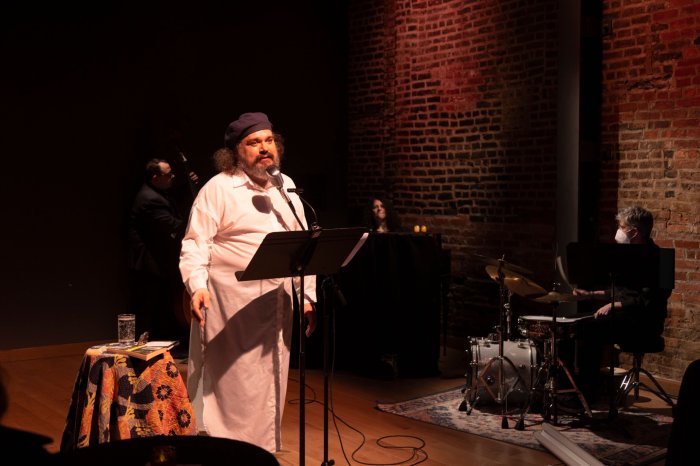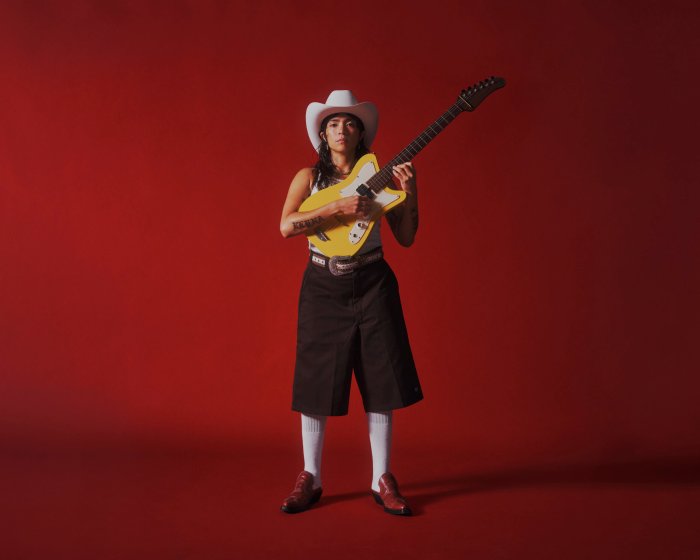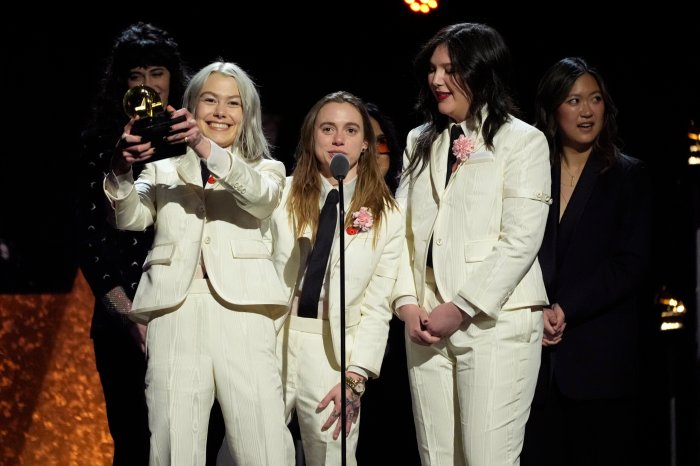Johan Botha and Renée Fleming in the Met’s production of Verdi’s “Otello.” | KEN HOWARD/ METROPOLITAN OPERA
2013 is the bicentennial of Giuseppe Verdi’s birth, so a Metropolitan Opera revival of his “Otello” was obligatory. The title role, though, is one of those like Norma or Carmen where good vocalism is not enough. The music requires a combination of vocal brass and subtlety, with the ability to dramatically go from towering rage to pitiful suffering in a heartbeat. The opera has regularly fallen out of the repertory when a convincing protagonist could not be found.
In his 2008 role debut at the Met, South African lyric heldentenor Johan Botha showed he had the vocal chops but not the dramatic skill. He returned to the role on October 9 and is scheduled to perform it in the HD transmission on October 27.
Unfortunately, during his opening “Esultate!,” Botha cracked on the high B and thereafter on practically every high note in the first two acts. After intermission, a Met representative pleaded our indulgence, explaining the tenor was suffering from allergies.
In Act III, during “Dio, mi potevi,” one could hear Botha collecting and focusing the tone, and he ended the evening in a careful but uneventful fashion to a decidedly muted response from the Met audience. Botha is one of those singers who, when they are unable to sing well, have no resources of dramatic ability or personal charisma to fall back on. It is not merely that he is hugely overweight— James McCracken was a rotund man who was a smoking volcano about to erupt as Otello. Botha’s face and body lack mobility of expression and, though he showed some interpretive growth since 2008 (the role was new to him then), Botha was simply acting by the numbers.
Also returning from 2008 were Renée Fleming as Desdemona and Semyon Bychkov in the pit. The role of Desdemona hits all the sweet spots in Fleming’s voice, and she sang with a lovely mixture of silvery float and creamy legato. A slight lack of vocal power in large ensembles and a weak lower register were the only signs of her veteran status.
Falk Struckmann as Iago showed a bit of Bayreuth bark in his rough-hewn declamatory approach to the villain’s music. His ensign didn’t bother to cloak his malevolence in false good fellowship. Struckmann was the one forceful dramatic and vocal presence onstage and nearly salvaged the evening. Another bright spot is the Cassio of young tenor Michael Fabiano, who is developing a dynamic stage presence and a rich middle voice with potential for bigger things.
Bychkov brought great clarity to intimate passages, but lost the forest for the trees in the big ensembles. The Act III concertato hung fire as he slowly emphasized each detail. Elijah Moshinsky’s production was a stately, handsome but hollow shell without the moving dramatic center supplied by the protagonist.
Camille Saint-Saëns’ 1882 grand-opéra “Henri VIII” is a backward-looking work. The composer continued the tradition of Meyerbeer and Gounod in a musical landscape transformed by Berlioz and Wagner. The belated American premiere occurred in San Diego in 1983, performed in English translation with a cast headed by Sherrill Milnes. It was not seen again stateside until Dr. Leon Botstein, musical champion of the neglected and rejected operas, took up its cause. He conducted the first US performance in the original language at the Bard Music Festival on August 20.
The plot concerns Henry VIII’s pursuit of Anne Boleyn and divorce from Catherine of Aragon, which precipitated England’s break from the Catholic Church. There is a subplot concerning Anne’s fictional prior paramour, the Spanish ambassador Don Gomez. The first act is merely paint by numbers exposition done by a skilled hand.
The second act is one sizzling confrontation duet after another. Anne puts off Don Gomez’s romantic entreaties. Then, King Henry gives Anne an offer she can’t refuse — the crown. The dramatic temperature rises to the boiling point when Queen Catherine confronts her new rival. The ensuing catfight was performed with relish by Jennifer Holloway as Anne and Ellie Dehn as Catherine. The act ends with the obligatory ballet.
Major cuts in the third act took us right to the Synod scene where private passions and public spectacle collide — similar to the Triumphal Scene in “Aida” or the auto-da-fé in “Don Carlos.” Catherine pleads her case but her marriage is declared null and void. The papal legate and the Spanish ambassador uphold Catherine’s rights. Henry then breaks with the Church of Rome and declares Anne his new queen. Act IV is mainly concerned with the death of Catherine and the beginning of Anne’s downfall. The last act seems anti-climactic — reducing history to soap opera trivialities.
Saint-Saëns did not provide really rousing arias — mostly minor key romances that display legato rather than bravura. The meat of the score is in the duets and ensembles. The score needs world-class voices; Botstein did the best with what was available. As Queen Catherine, Dehn’s lovely lyric soprano scored in elegant lyrical passages but was stretched by the dramatic climaxes of this lirico-spinto role. Holloway’s smoky mezzo exuded sensuality and brooding conflict as Anne.
Canadian tenor John Tessier brought authentic Gallic style and pronunciation to the underdeveloped role of Don Gomez. British baritone Jason Howard as Henry VIII, a star baritone role, produced coarse tuneless howls in the upper register that deprived the king of regal power and aristocratic elegance. Several talented American baritones would have done better — Louis Otey, Stephen Powell, and Quinn Kelsey come to mind
“Henry VIII” is very accomplished work by a consummate musician in the historical grand opera genre. But Verdi got there first and with genius in “Don Carlos”.


































